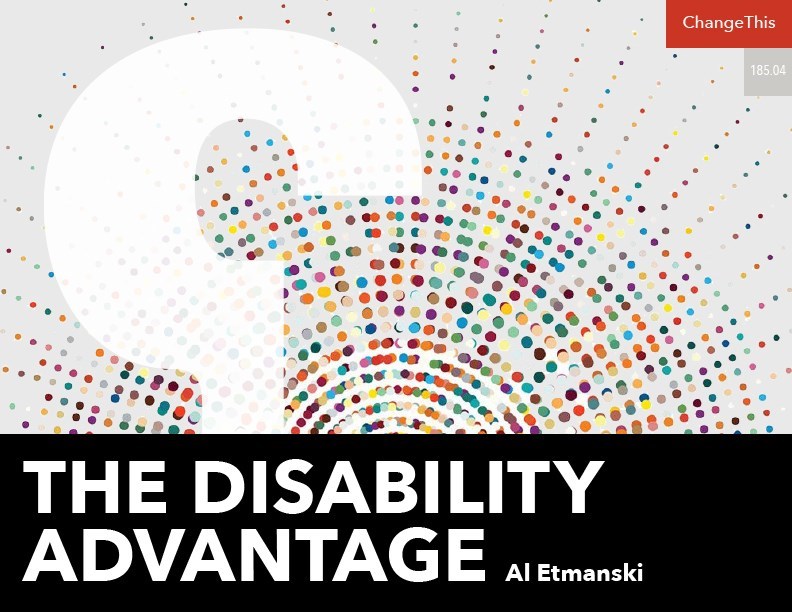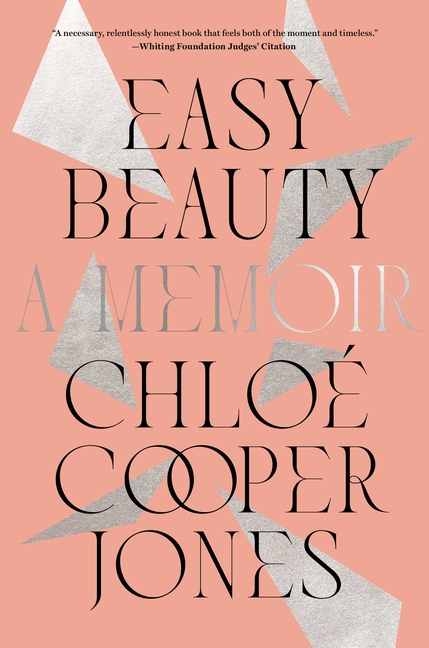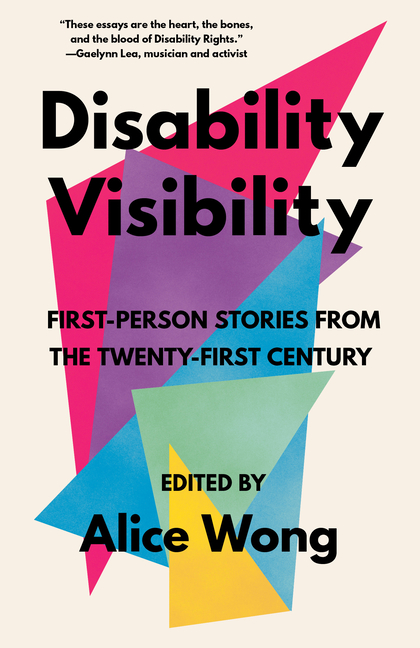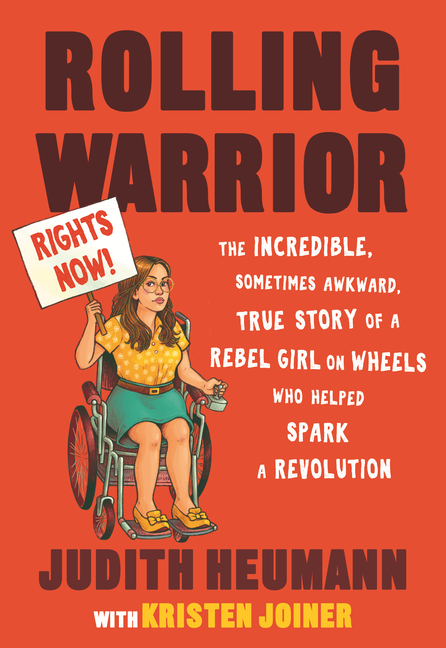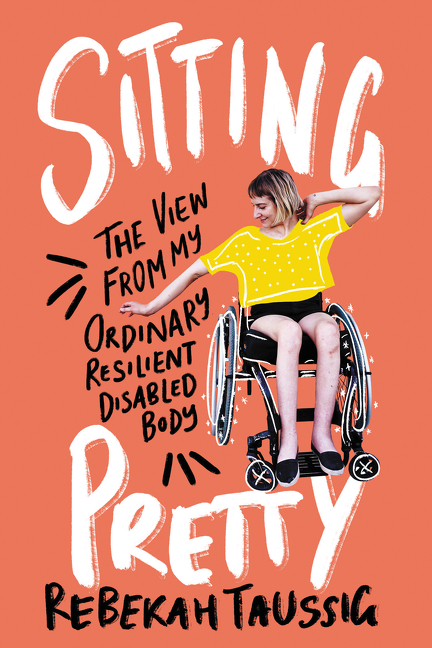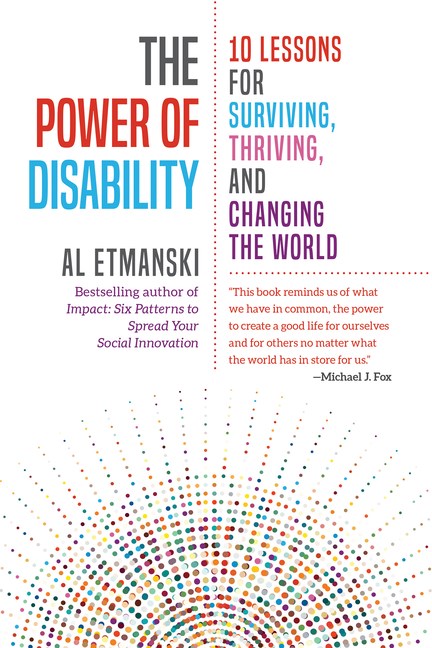Disability Book Week: April 23-29
April 25, 2022
We see you, and we read you. Here are five reading recommendations focused on the disabled community of authors and books.
In books there are reflections of ourselves and a glimpse of our antitheses alongside innumerable variations of life in between. And it’s a lot easier to understand and respect all sides of the same story in the safe space between the pages of a book.
We have an obligation as human beings in an unequal world to recognize and value lives unlike our own. Reading diverse books widens our perspective of the world, hopefully encouraging us to progress in our everyday lives with greater empathy and esteem for the expansive array of existence we participate in.
We see you, and we read you.
•••
One in four adults in the United States lives with a disability, but how many books do you read by disabled authors or about the experience of disability? Below, we have recommended reading–reviews, a ChangeThis manifesto, and an upcoming live-streamed interview–to honor disability book week, April 23-29.
 Upcoming Live-Streamed Interview | Chloé Cooper Jones, May 16, 6:30pm CST
Upcoming Live-Streamed Interview | Chloé Cooper Jones, May 16, 6:30pm CST
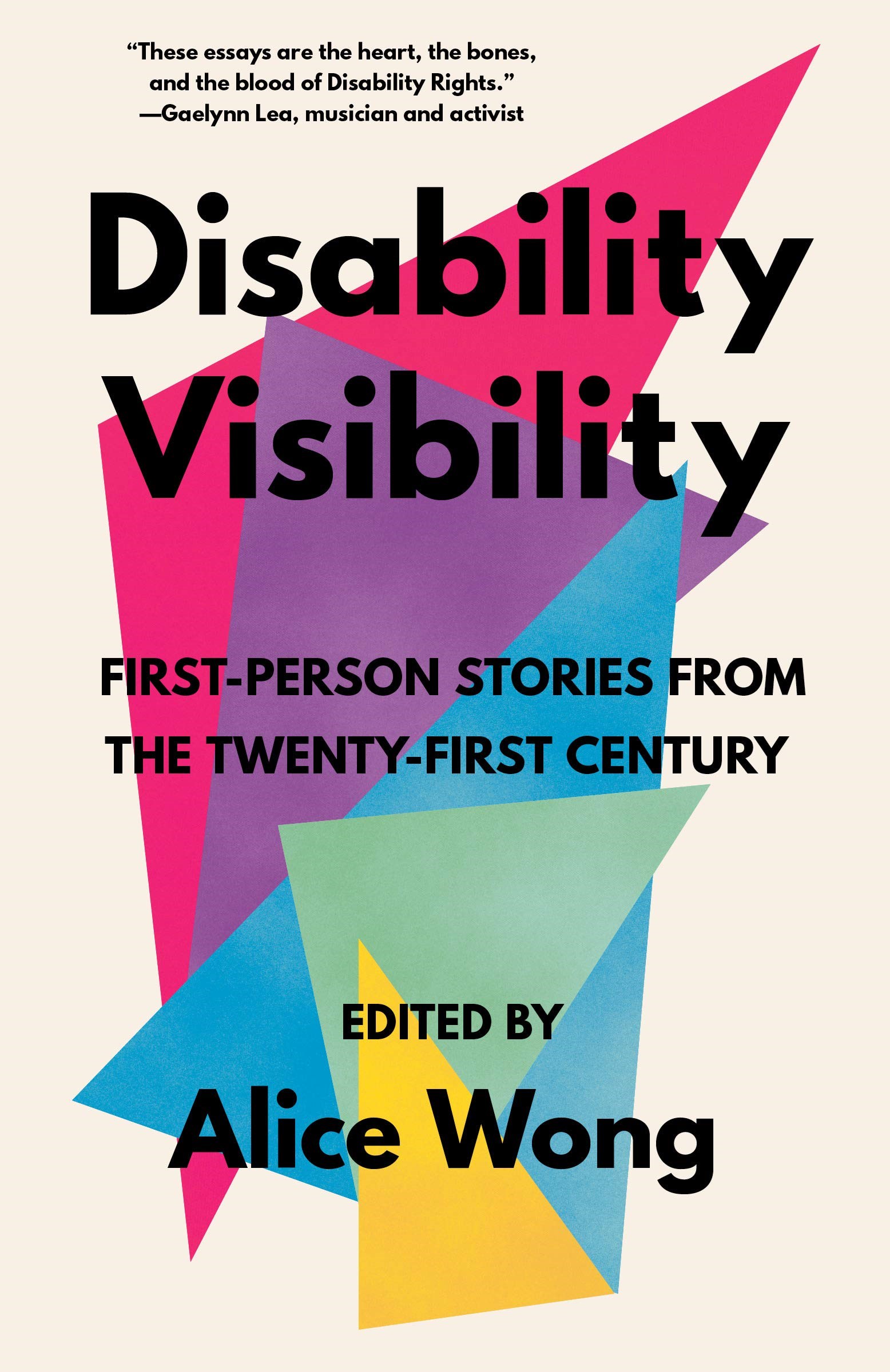 Review | Disability Visibility: First-Person Stories from the Twenty-First Century edited by Alice Wong, Vintage Books
Review | Disability Visibility: First-Person Stories from the Twenty-First Century edited by Alice Wong, Vintage Books
"To my younger self and all the disabled kids today who can’t imagine their futures. The world is ours, and this is for all of us." This dedication from editor Alice Wong is a simple and yet powerful statement to the importance of seeing oneself–one's flaws and strengths, quirks and temperaments, pasts and presents– reflected in books, movies, and culture, fiction as well as nonfiction, celebrities as well as everyday people. Seeing how someone "like you" (in whatever way) overcame obstacles empowers you and countless others "like you" to overcome those same obstacles together. When you realize you are not alone in your struggles, they become much more surmountable and less burdensome.
Wong's introduction highlights, not how her disability affects her life, but how the inadequate presence of disability affected her life and others' lives. The Americans with Disabilities Act of 1990 "profoundly changed my life and millions of others, giving us a civil rights law we could call our own." (The importance of political representation is a theme this week. See my writeup on Queens of the Resistance: Maxine Waters below.)
Partnered with StoryCorps, Wong created the Disability Visibility Project in 2014, which has logged approximately 140 oral histories as well as developed an online platform that celebrates collaboration, representation, and community-building. The book Disability Visibility gathers up the stories of those in the disabled community into sections about "Being," "Belonging," "Doing," and "Connecting" prefaced with content notes. "These stories do not seek to explain the meaning of disability or to inspire or elicit empathy. Rather, they show disabled people simply being in their own words, by our own accounts." While it may feel like a step forward to expose the stories of an often overlooked community, it is not enough to listen. We must actively engage in their lives as well. Wong informs us: "Collectively, through our stories, our connections, and our actions, disabled people will continue to confront and transform the status quo. It's who we are."
The Disability Visibility Project website is bursting with great podcasts, interviews, articles, and more. You might be interested in the podcast episode #36: Disabled Entrepreneurs with Tinu Abayomi-Paul and Mary, Hannah & Emma Layden. (GMC)
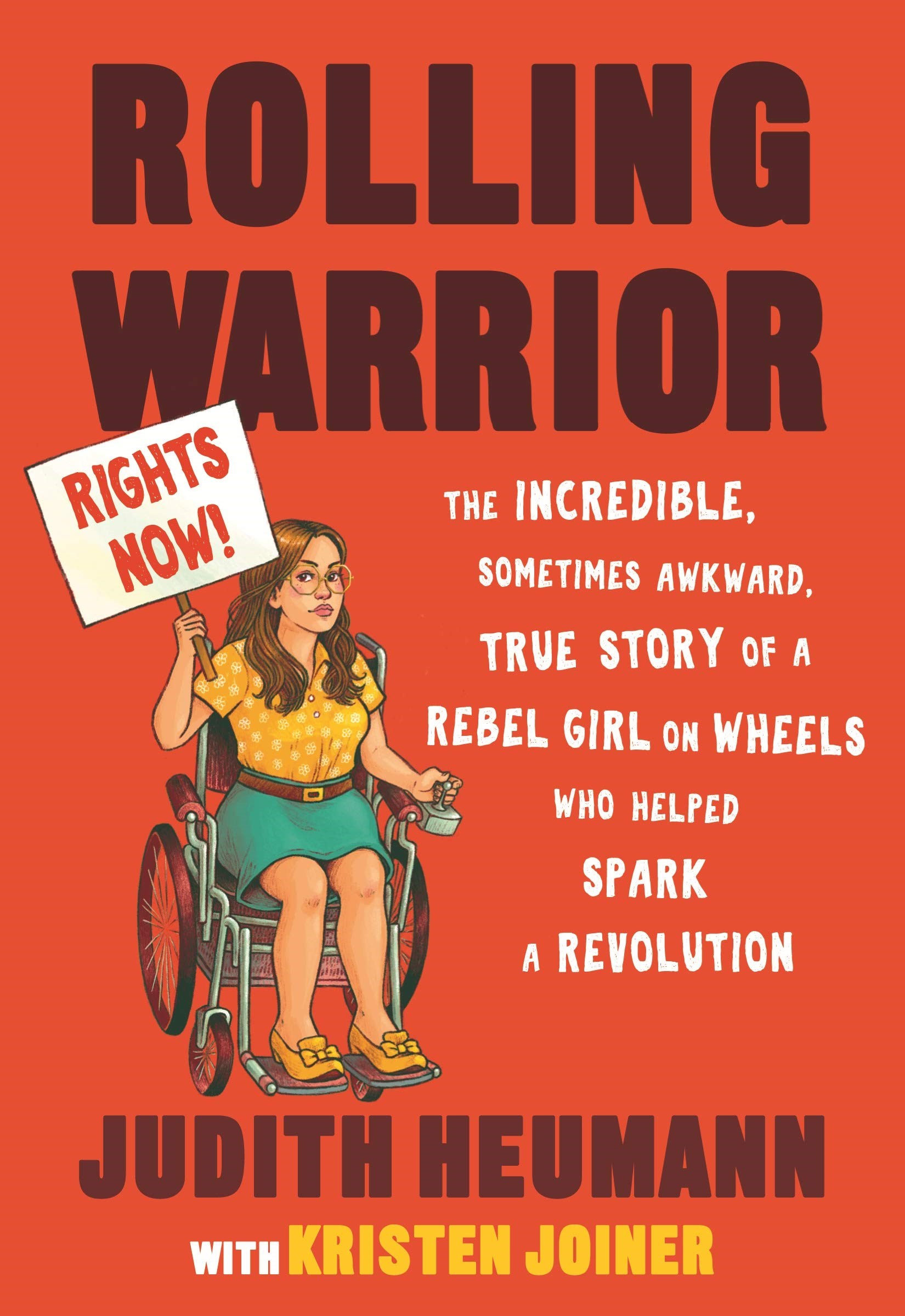 Review | Rolling Warrior: The Incredible, Sometimes Awkward, True Story of a Rebel Girl on Wheels Who Helped Spark a Revolution by Judith Heumann, Beacon Press
Review | Rolling Warrior: The Incredible, Sometimes Awkward, True Story of a Rebel Girl on Wheels Who Helped Spark a Revolution by Judith Heumann, Beacon Press
In Rolling Warrior, Judith Heumann conveys the epic tale of the rise of the Disability Rights Movement through her eyes. It is hard to believe that at one point in time, not too long ago, there were no ramps into buildings or onto sidewalks, a lack of educational opportunities and endless discrimination against individuals with disabilities. This story, written by the woman who helped lead the movement and change the law, along with millions of individuals lives, is one everyone should read and educate themselves about.
Judith Heumann writes about her experiences living in a world made to ignore her and people like her, and how she sparked a revolution. Denied her teachers license, treated as though she were “sick” and not given the proper education extended to other children, Judith began her fight for equality for people being ignored time and time again.
The regulations of Section 504 of the Rehabilitation Act were not being implemented, and the community of individuals with disabilities had had it. In 1977, on April 5th, the coalition took action and began a sit-in at the Federal Building in San Francisco that lasted until April 28th when the regulations were finally signed and changed. This only happened because Judith and other protesters demanded their basic and everyday human needs be met.
My stomach wrenched. A fleeting vision passed in front of my eyes: me, thanking person after person for helping me up a step into the bathroom. I was so tired of being grateful for being able to go to the bathroom.
We have compromised our whole lives,” I said, trying to keep the edge out of my voice. “And we’re so close now to winning.”
She went on to fight for individuals with disabilities around the world, to make sure they were being seen by their government.
This inspirational book shows how one individual made a huge impact on the world and made a difference nationwide. Judith’s story, like so many others, shows us the power of speaking up and the power of community.
How many times had I been blocked from going somewhere? Told I couldn’t get in? Told’ “No not you”?
Buses, planes, schools, restaurants, theaters, offices, friends’ houses flashed through my mind.
Rolling Warrior gives you a look into the life of a woman who sparked a revolution as if you were with her during the entire historical moment. A must read for everyone. (EPP)
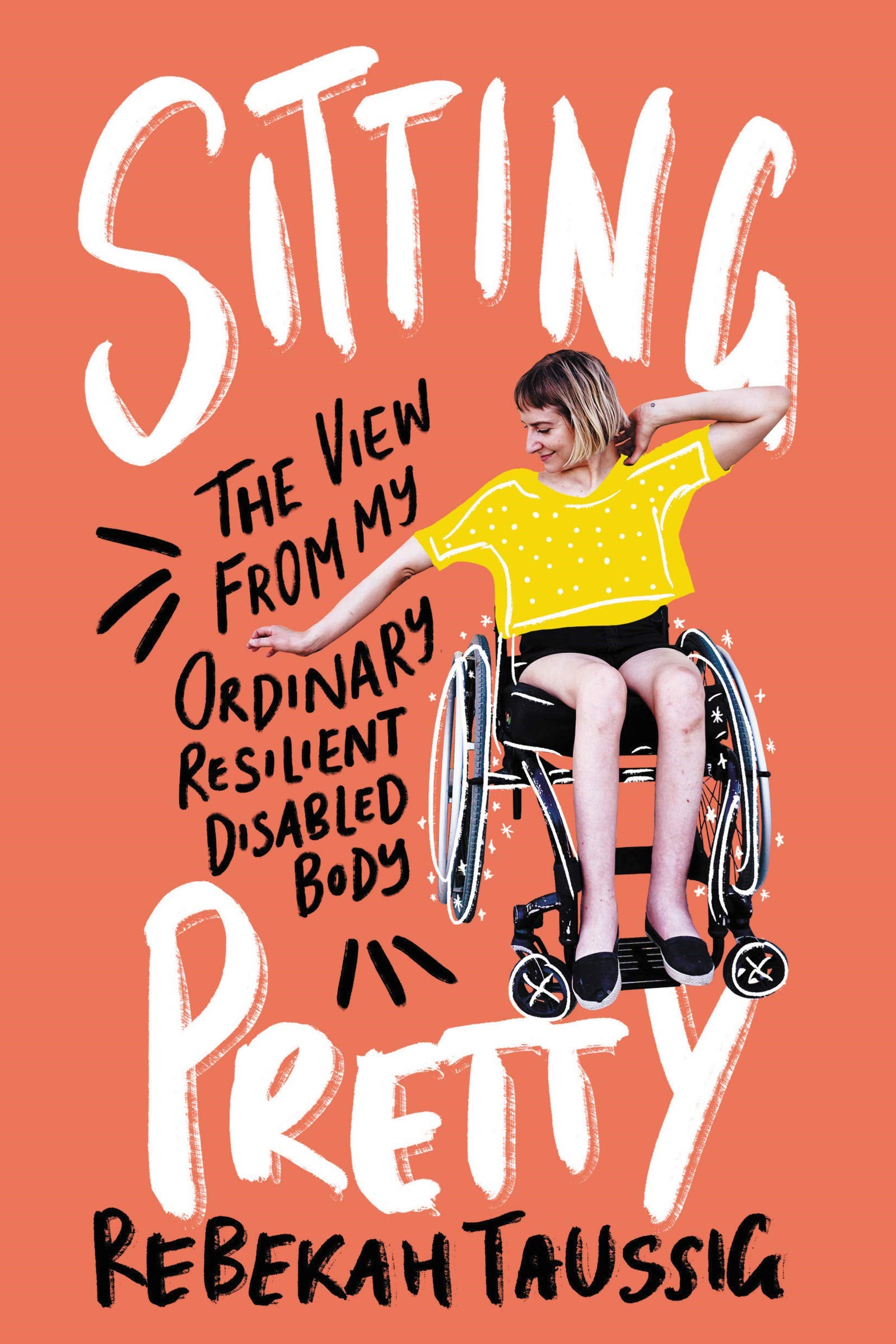 Review | Sitting Pretty: The View from My Ordinary Resilient Disabled Body by Rebekah Taussig, HarperOne
Review | Sitting Pretty: The View from My Ordinary Resilient Disabled Body by Rebekah Taussig, HarperOne
Though author Rebekah Taussig is disabled, and has been for nearly her entire life, she writes in the introduction to Sitting Pretty:
I'd never considered disability an identity worth understanding, let alone celebrating...
Beyond the differences between disabled and able-bodied, sadly, many humans have been socially misled to strive to fit in rather than acknowledge and honor what makes themselves stand out. As our society continues to work toward better representation of ethnicity, gender, sexuality, and the abundant intersections of these and other identities, stories like Taussig's are ones we should pay attention to. In the lives of others, we can sometimes find pieces of ourselves.
By listening to the stories of others in the disabled community, Taussig says:
Their accounts deepened my understanding of my own history and gave me new pictures to reimagine what it can mean to be a disabled woman.
The key here is the plural form of "accounts," because one disabled experience can not speak for all disabled experiences. Taussig shares her story not so that the reader can learn how to interact with all disabled people, but so that we can all start conversations with each other about the varied struggles and successes she presents. Her voice is a fairly cheerful one as she introduces her no-nonsense family of eight ("and several rabbits") who didn't do much to accommodate for her cancer diagnosis or paralyzation by the age of three. No ramps or handrails were installed, and Rebekah still climbed to the top bunk bed at the end of a day that may be filled with playful wrestling with her siblings and pranking strangers in Walmart "by leaving me and my wheelchair overturned on the ground, wailing and waiting for people to rush to my aid."
Every coming-of-age story is bitter-sweet, but Taussig's quick transition from innocence to feeling like "a burden on the people around me" is particularly affective. Her struggles go beyond direct bullying and confront ableism, which is a very big idea that she attempts to compress into the definition: "the process of favoring, fetishizing, and building the world around a mostly imagined, idealized body while discriminating against those bodies perceived to move, see, hear, process, operate, look, or need differently from that vision." There's a lot more to learn and think about concerning this and other forms of discrimination, so I hope you begin soon by picking up a copy of Sitting Pretty.
Learn more about Rebekah on her Instagram, @sitting_pretty. (GMC)
ChangeThis | "The Disability Advantage" by Al Etmanski
"The ultimate lesson I’ve learned from my journey in the disability community is that life comes from life. It comes from life in every shape, size, and background. Complex lives. Messy lives. Struggling lives. Determined lives. Funny lives. Mysterious lives. Sensual lives. Beautiful lives. Sacred lives."


